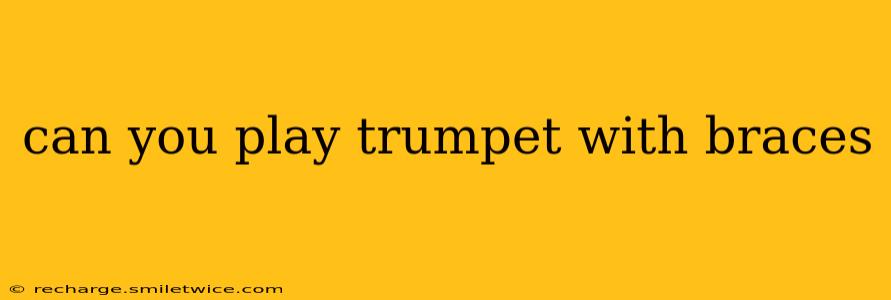Can You Play Trumpet with Braces?
The short answer is: yes, you can generally play trumpet with braces, but it might take some adjustment. Playing a wind instrument like the trumpet with braces isn't automatically impossible, but it does present some unique challenges and considerations. Many successful trumpet players have navigated this, and with the right approach, you can too.
What are the challenges of playing trumpet with braces?
This is a common question among young musicians. The main challenge lies in the potential for discomfort and the possibility of damage to the braces themselves.
-
Lip and Mouthpiece Comfort: Braces can create extra pressure points inside your mouth, making it uncomfortable to hold the mouthpiece correctly. This can affect your embouchure (the way you shape your mouth and lips), leading to less efficient airflow and potentially affecting your tone and playing ability. The metal brackets and wires can also interfere with the natural movement of your lips and tongue.
-
Mouthpiece Pressure: The pressure required to hold the mouthpiece firmly can exert force on the braces, potentially leading to discomfort or even damage to the brackets or wires.
-
Potential for Damage to Braces: Depending on the type of braces and the force used, there's a small risk of bending or breaking a wire or bracket. This is more likely if you're playing intensely or using excessive mouthpiece pressure.
How can I minimize the challenges?
Fortunately, there are ways to mitigate these challenges and ensure you can continue your musical journey successfully.
-
Consult Your Orthodontist: The most crucial step is to talk to your orthodontist. They can assess your specific brace type and offer personalized advice. They may suggest adjustments to your braces or recommend specific playing techniques to minimize risk.
-
Adjust Your Embouchure: You may need to slightly adjust your embouchure to accommodate the braces. This might require some experimentation and practice to find the most comfortable and efficient position. A trumpet teacher can be invaluable in this process.
-
Use a Softer Mouthpiece: Consider using a mouthpiece with a shallower cup or made of softer material. This can reduce the pressure on your braces and lips.
-
Build Up Gradually: Don't try to play for extended periods immediately. Start with short practice sessions and gradually increase the duration as your mouth adjusts.
-
Regular Check-ups: Schedule regular check-ups with your orthodontist to monitor the condition of your braces and address any potential issues promptly.
What if my braces are causing significant pain?
If playing trumpet with braces is causing significant pain, stop immediately and consult your orthodontist. Continuing to play through severe discomfort can lead to damage to your braces and potentially even injure your mouth.
Can I play trumpet with Invisalign?
Playing trumpet with Invisalign aligners is generally easier than with traditional braces. The aligners are removable, so you can take them out while practicing and playing, eliminating many of the potential problems associated with fixed braces. However, it's still advisable to check with your orthodontist.
Will my playing improve over time?
With patience and the right approach, most players find they adapt to playing with braces. Your embouchure may change slightly, but with diligent practice, you should be able to maintain your playing ability. A good teacher can guide you through the adjustments needed.
Remember, communication with your orthodontist and trumpet teacher is key to successfully navigating playing trumpet while wearing braces. Don't hesitate to reach out to them for guidance and support.
